Chihuahua Dog Breed Information
A Chihuahua’s small size, usually not more than 6 pounds, can be misleading; these pups have bold personalities, are always alert, and show fierce devotion to their human companions. They come in various coat colors and can have an apple or deer-shaped head.
As a responsible owner, one must be mindful of a Chihuahua’s health, particularly for heart problems, hydrocephalus, and dental issues common to the breed. Chihuahuas are energetic yet don’t require rigorous dog training, making them adaptable companions for various home setups.
Key Takeaways
- Chihuahuas charm with their tiny stature and Mexican heritage.
- Despite their weight under 6 pounds, they show fearless devotion.
- Health awareness for heart and dental care is vital.
Chihuahuas, originating from Mexico, win hearts with their unique appearance. Despite their small size, these dogs display immense courage and loyalty. Owners should prioritize monitoring their Chihuahua’s heart and dental health.
Quick Facts
Chihuahuas may be tiny, but they carry a rich history and are a cultural icon in Mexico. These small dogs, hailing from the Mexican state of Chihuahua, stand only about 5-8 inches tall and typically weigh no more than 6 pounds. Despite their petite size, Chihuahuas are known for their vibrant and attentive personalities.
Research shows they often live long lives, with many reaching 14-16 years old. However, Chihuahuas are prone to specific health issues like congenital heart disease, so owners must closely monitor their well-being.
As beloved pets and subjects of scientific interest, Chihuahuas continue to intrigue people around the world.
Chihuahua Pictures
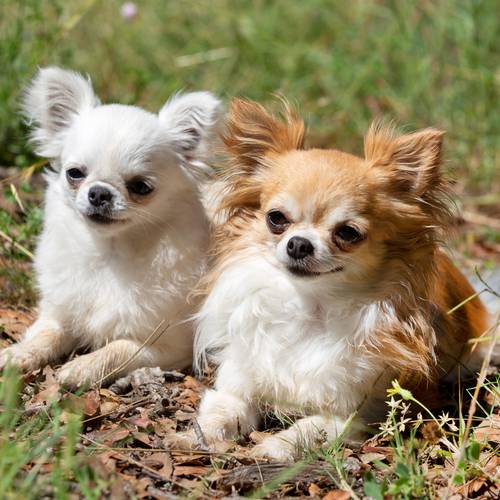
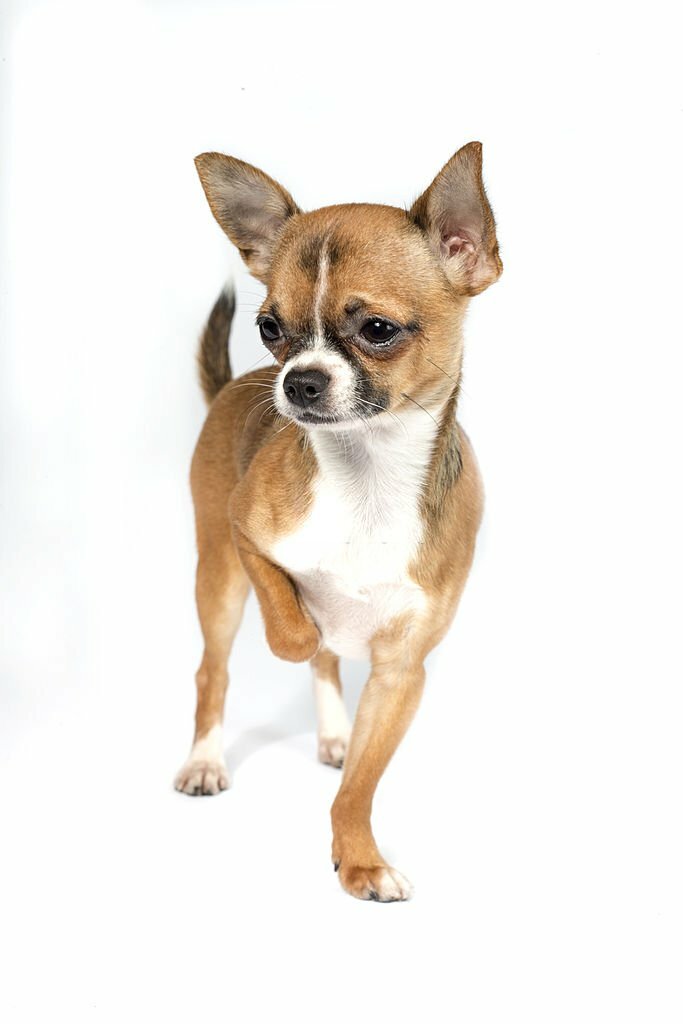
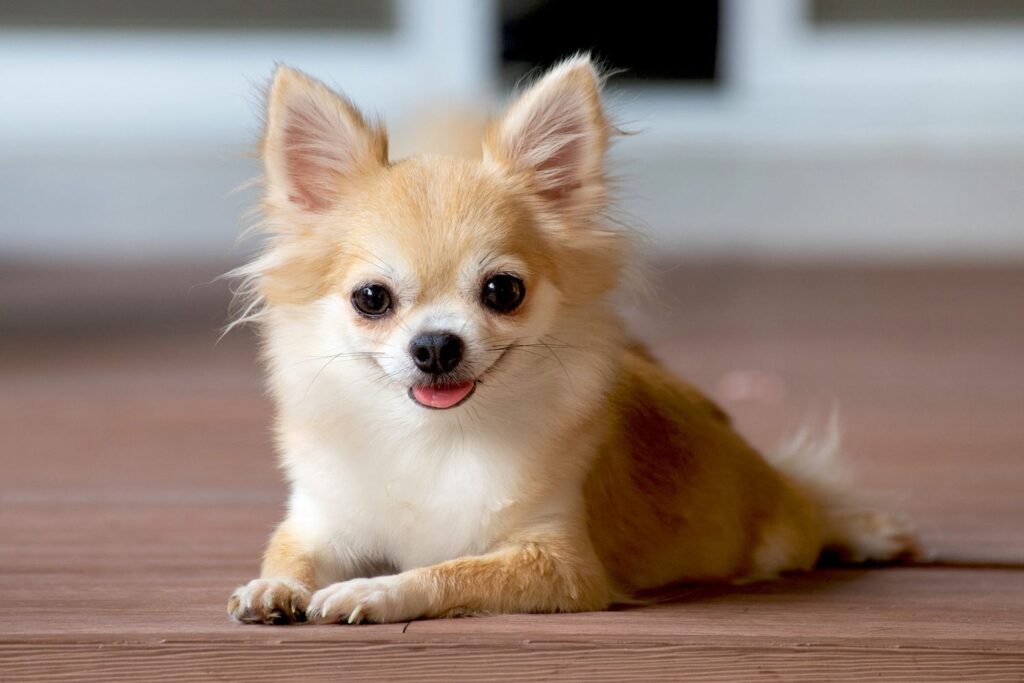
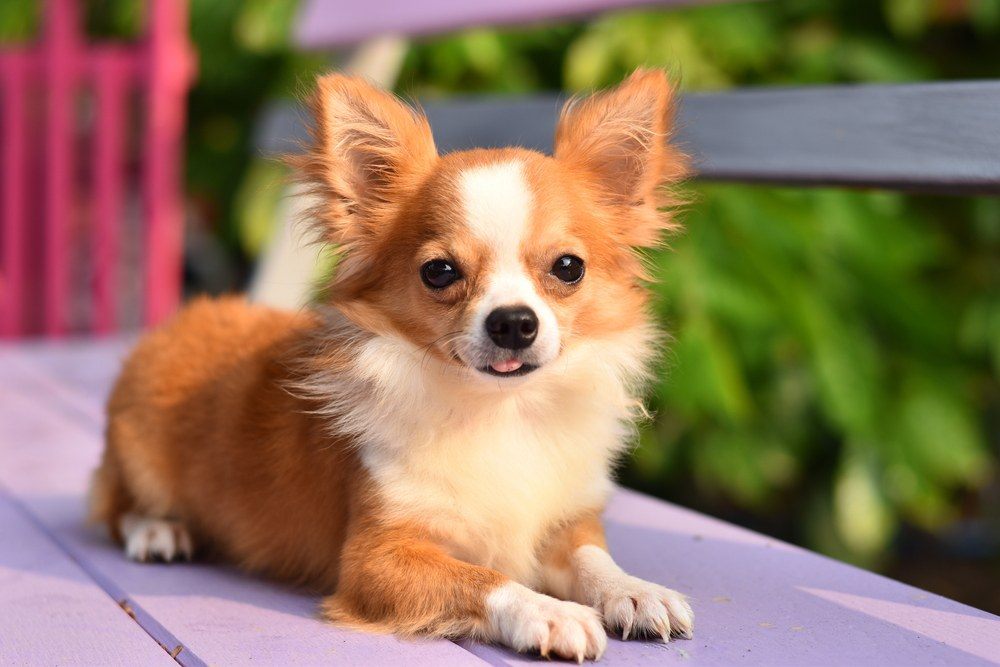
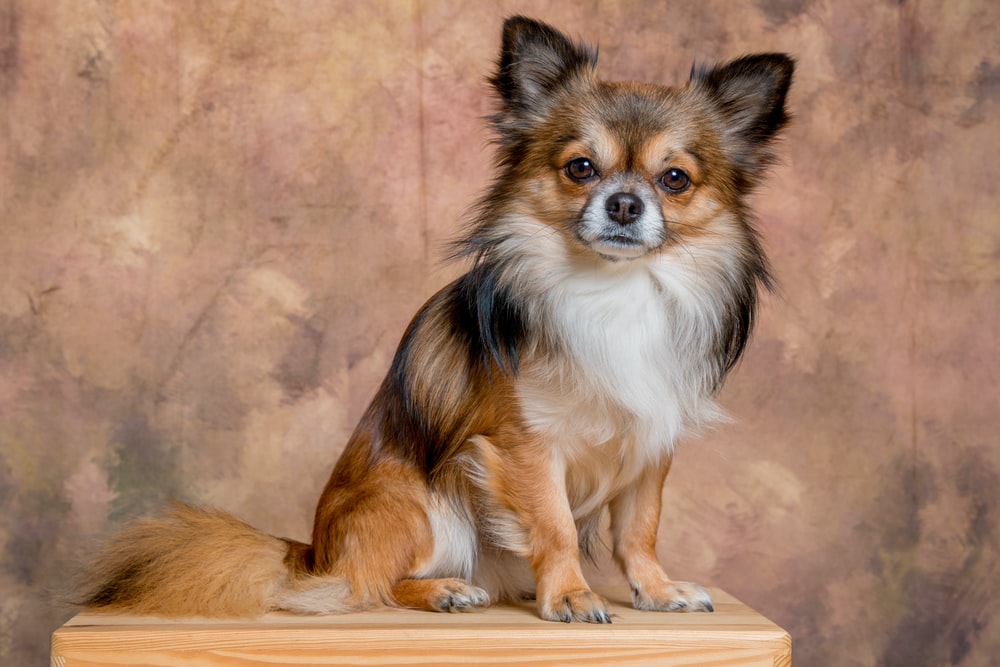
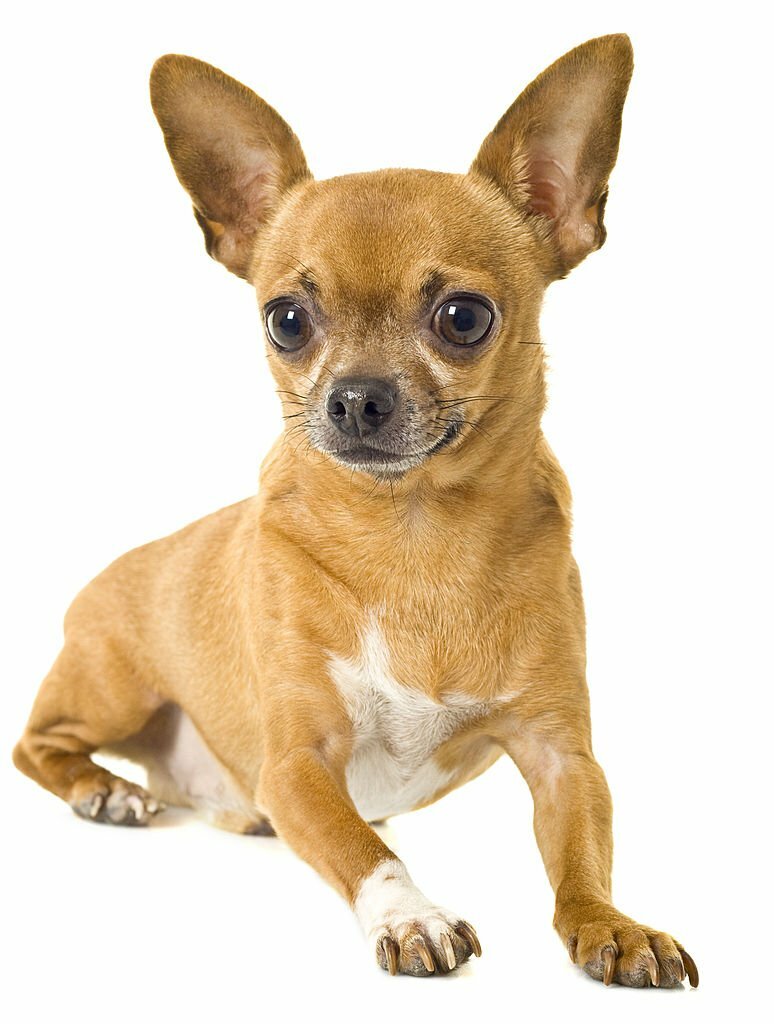
Overview
Let’s look at the Chihuahua, a breed that has won over many with its charm and personality.
The Chihuahua stands out with its distinctive apple-shaped head and tiny size, recognized by dog enthusiasts worldwide. Originating from ancient civilizations, this small dog carries a vast cultural history in its petite body.
These dogs are lively and assertive, often surprising people with their fearless nature, which contrasts with their small size. The Chihuahua gained popularity beyond pet circles thanks to Gidget, the dog that starred in Taco Bell commercials.
To keep these spirited dogs happy and healthy, with a 14-16-year lifespan, it’s essential to focus on proper breeding practices and early socialization.
Breed Hallmarks
The Chihuahua breed is easily recognized by its small size and the distinct apple-dome skull shape, resulting from its long breeding history. These dogs also come in two fur types: a smooth coat that is soft to the touch and a long coat with fine outer fur.
There’s also a variation known as the ‘deer head’ Chihuahua, which has a less rounded skull and a more extended nose, contrasting to the typical apple-dome shape. Here’s a quick comparison:
| Feature | Apple-Dome Head | Deer Head |
|---|---|---|
| Skull Shape | Rounded | Flatter |
| Nose Length | Short | Longer |
| Eye Appearance | Prominent | Less Protruding |
| Body Type | Compact | More Elongated |
| Coat Variation | Smooth or Long | Usually Smooth |
Understanding these physical characteristics is vital because they can influence the Chihuahua’s health and behavior.
Breed Origins
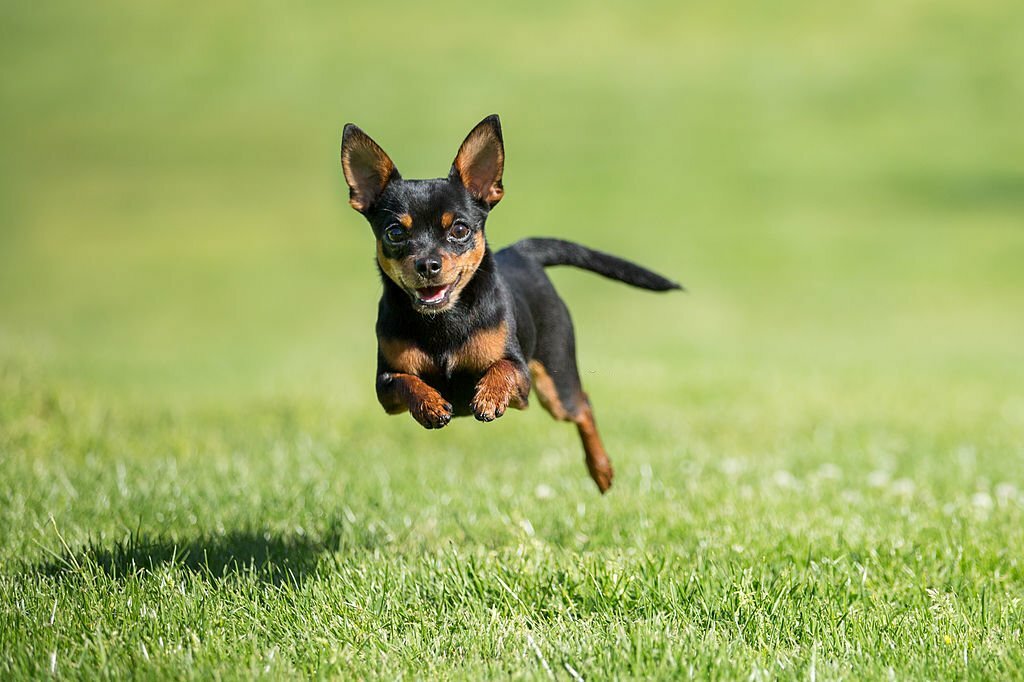
The Chihuahua has a rich history intertwined with the ancient civilizations of Mesoamerica. Studies of their past reveal traces of genetic connections to the dogs that were part of pre-Columbian societies. Over the centuries, this small breed has transformed from a sacred symbol to a beloved pet.
Evidence of the Chihuahua’s past is visible in colonial-era documents and artwork from the region bearing its name. They have proven adaptable, changing alongside human societies and various climates. These tiny dogs have survived and thrived through significant cultural and environmental changes.
Ancestral Chihuahua Roots
Chihuahuas have a rich history that dates back to the ancient cultures of Mexico. These tiny dogs were highly valued in societies long before European colonization. DNA tests show that Chihuahuas share a close genetic link with indigenous Mexican dog breeds, which are rare among dogs in North America today. Writings from the 1500s mention small, sparse-haired dogs around the Chihuahua area, suggesting that these dogs have been around for centuries.
Chihuahuas are recognized for their small size in the Toy Group by dog clubs and are one of the oldest breeds in the Americas. Their ancestors came from native American dogs that crossed into the continent from Siberia around 10,000 years ago, highlighting their deep roots and historical significance.
Historical Significance
Research into the origins of the Chihuahua breed suggests that these small dogs are descendants of the Techichi, a favored companion of the ancient Toltec civilization in Mexico. This link gives the Chihuahua a storied place in history as one of the earliest dogs in the Americas.
Originating from the Mexican state of Chihuahua, where they became well-known, these dogs hold a special place in Mexican heritage and the history of dogs in the Western Hemisphere.
Chihuahuas are found in two distinct coat types: smooth and longhaired, featuring various colors and patterns. Their continuous presence from ancient times to their recognition by the American Kennel Club (AKC) in 1904 reflects the Chihuahua’s longstanding cultural significance.
Evolution Over Time
The Chihuahua breed has a rich history that can be traced back to the indigenous dogs of Mexico before European contact. DNA research confirms that these small dogs are among the oldest breeds in the Americas.
Historical documents show the Chihuahua was well-established by the 16th century, suggesting they were well-suited to the local conditions. Through the ages, living alongside humans and through careful breeding, Chihuahuas have developed their unique physical appearance and personality traits.
Studies of ancient canine DNA have even highlighted the Chihuahua’s genetic links to their pre-colonial ancestors, offering insights into their extensive history.
This research helps us understand the transition of the Chihuahua from an indigenous dog to a beloved pet known worldwide today.
Physical Dimensions
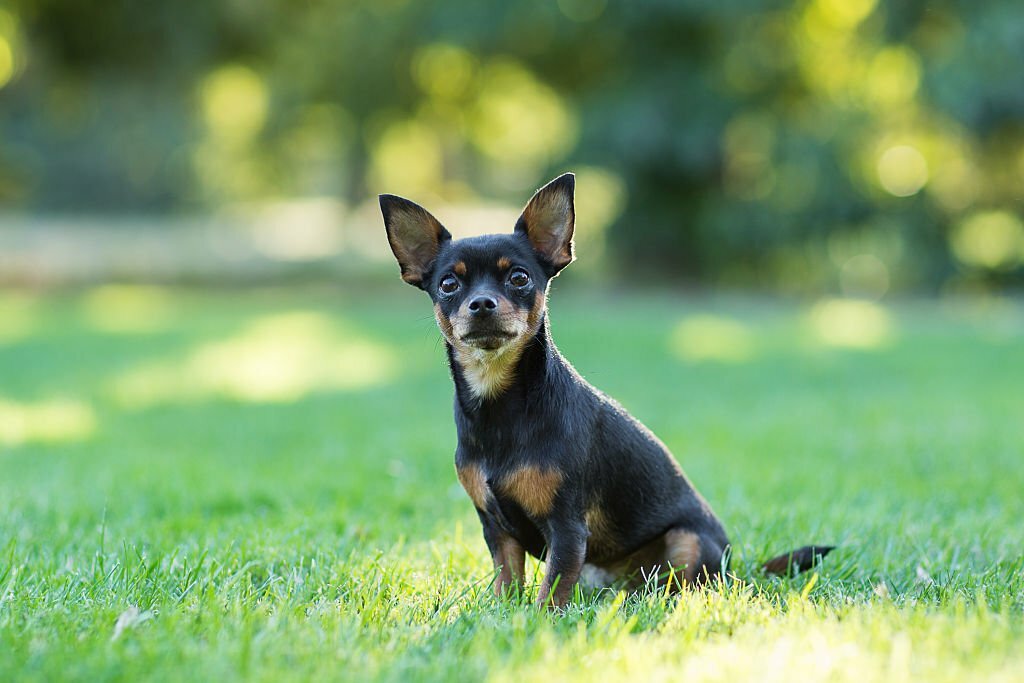
When evaluating a Chihuahua, the physical dimensions defining the breed are essential. Chihuahuas should weigh no more than 6 pounds to meet breed standards, and their height usually falls between 5 and 8 inches at the shoulders.
Another critical aspect is the distinct skull shapes, which vary between the apple-headed and deer-headed Chihuahuas. This difference greatly influences the appearance of their head and faces.
Breed Size Variation
Chihuahuas are known for being small, typically standing between 5 and 8 inches tall, and rarely weighing more than 6 pounds. Recognized as one of the most miniature dog breeds by various kennel clubs, their petite size is a defining trait and a health consideration for breeders.
Breeders carefully monitor the breed’s size to prevent health problems related to being overly tiny. Chihuahuas are available in smooth and long coats, but these variations don’t affect their size. They are characterized by a distinctive apple-dome skull, bright eyes, and perky ears that suit their compact bodies.
Responsible breeding is critical to ensuring these dogs are at a healthier weight, which helps reduce the risk of injuries to which their small frames can be susceptible.
Weight Range
Chihuahuas are known for their small size, typically weighing between 2 and 6 pounds and standing 5 to 9 inches tall at the shoulder. These toy dogs are loved for their ability to fit snugly into a life of companionship but require careful breeding to avoid health issues.
It’s hazardous for these dogs to weigh under 2 pounds, as they can have more health problems. Studies show that a Chihuahua’s weight at 14 weeks old can help predict their adult size, so for a healthier pet, choose one that’s expected to grow to at least 4 pounds.
This approach supports responsible breeding practices focusing on the dogs’ long-term health.
Height Measurements
Chihuahuas typically stand between 5 and 8 inches tall at the shoulder, making them one of the most miniature dog breeds. Their tiny stature is a hallmark of the breed, stemming from a genetic push towards being compact.
When assessing a Chihuahua’s size, it’s vital to consider how it affects their health. For example, their small bones can lead to joint problems like patellar luxation, where the kneecap slips out of place. Breeders and vets pay close attention to height and body structure to help Chihuahuas stay healthy while preserving their petite size.
Skull Shape Differences
Chihuahuas are known for their distinctive skull shapes, especially the apple-head and deer-head varieties, which give the breed its signature look.
The apple-head Chihuahuas have a round, dome-like skull with eyes set apart, giving them an expressive face often seen in dog shows.
On the other hand, deer-head Chihuahuas have a flatter skull and a longer muzzle, making their appearance similar to that of a deer.
Breeders tend to favor the apple-head Chihuahuas because they align more closely with the traditional appearance of the breed.
However, breeders must focus on keeping Chihuahuas healthy and functional, not just meeting the breed’s standard physical traits.
Body Proportions
Chihuahuas are well-proportioned, with their small size matching the breed standards of 5-9 inches in height and a weight range of 2-6 pounds. Some may be slightly larger or smaller than these norms.
Their compact build is perfect for city living, fitting easily into snug apartments or houses with small gardens. Chihuahuas can deftly move through busy dog parks, and their size doesn’t limit them from being trained to use crates, which can be sized to provide them with both comfort and a sense of safety.
Temperament Traits
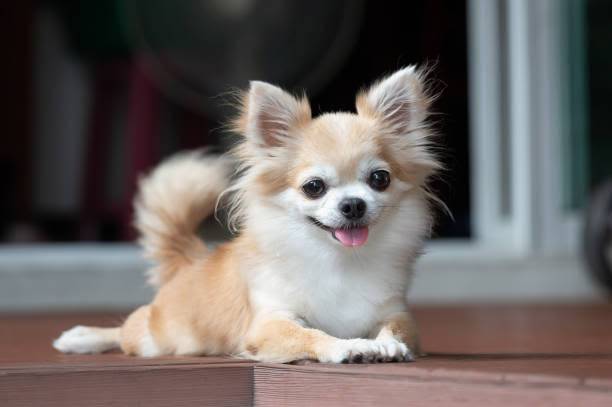
Chihuahuas are known for their distinct personalities that include a mix of boldness and confidence. This small breed often carries itself with an assertive presence, which can be surprising given its size. At the same time, Chihuahuas form deep connections with their families and show a lot of love towards their owners. They thrive on close relationships and often seek out the company of their favorite humans.
- Assertive Presence: Investigating what makes Chihuahuas so self-assured in different settings.
- Loyal Companions: Assessing the depth of a Chihuahua’s bond with its human family.
- Importance of Socialization: Understanding how early interactions and consistent training can shape a Chihuahua’s behavior and prevent aggression.
How a Chihuahua interacts with others, and its environment largely depends on how well it has been socialized and trained. Consistent and positive training methods help these dogs learn to behave well and get along with other pets and people. Early socialization prevents aggressive tendencies and encourages Chihuahuas to be friendly and well-adjusted.
Bold, Confident Behavior
Despite their small size, Chihuahuas are known for their bold and confident nature, often standing up to dogs much more significant than themselves. Their fearless behavior might stem from an innate sense of territory and possibly an unawareness of their diminutive scale.
Dog trainers agree that Chihuahuas need regular, structured training to curb their tendency to challenge larger dogs. Introducing them to social situations early on can help reduce aggressive tendencies and promote a more balanced demeanor.
Genetics plays a significant role in a Chihuahua’s behavior, so breeders should consider temperament when selecting dogs for breeding. Positive reinforcement training techniques can channel their vivacity into positive behaviors, which may lessen their chances of acting aggressively.
Affectionate With Family
Chihuahuas often form a close and loving relationship with their families, showing affection to those they live with. Recognized by the American Kennel Club as loyal companions, these small dogs are hardwired to create strong emotional ties with their owners.
Studies on dog behavior suggest that Chihuahuas are naturally inclined to become deeply connected with their human families, primarily when raised with care and consistent social interaction.
Handling these tiny pets carefully is essential, as their diminutive size makes them particularly fragile.
Socialization Needs
Socializing Chihuahuas early is vital in helping them grow into well-behaved pets. Their behaviors are often inherited, so it’s critical to personalize their socialization experiences.
Proper socialization can help prevent aggression and fearfulness towards other animals and people, common issues in smaller breeds. Training Chihuahuas teaches them good manners and helps them feel confident in different situations.
A well-thought-out socialization plan is essential to ensure a Chihuahua is emotionally balanced and friendly.
Potential Aggressiveness
Despite their tiny size, Chihuahuas may behave aggressively toward people or other animals they don’t know. These little dogs are often brave and self-assured, which might result in risky encounters with bigger dogs. Chihuahuas can sometimes act aggressively, challenging much larger animals without considering the risks. This is due to their inherent tendencies to protect and guard, not because they see themselves as prey.
How a Chihuahua acts, including any signs of aggression, can be heavily influenced by its genetics. However, consistent socialization and proper training can usually reduce these behaviors. The dog’s ability to become a friendly and well-mannered pet largely depends on the dedication of its owner to guide and train it effectively.
Training and Obedience
Training a Chihuahua requires patience and consistency, as their natural traits can influence their learning. Their temperament often passed through their genetics, can make them either stubborn or more amenable to training.
For instance, longhaired Chihuahuas tend to be more cooperative, making them easier to train. Keeping their minds active is crucial when training your Chihuahua; it helps them stay focused and more willing to learn.
Despite their small size, Chihuahuas need a structured training plan. They can be tricky to housebreak and may develop a habit of excessive barking if not appropriately trained. A well-planned approach to their training helps with these issues and fosters better behavior, making them well-behaved companions.
Common Health Concerns
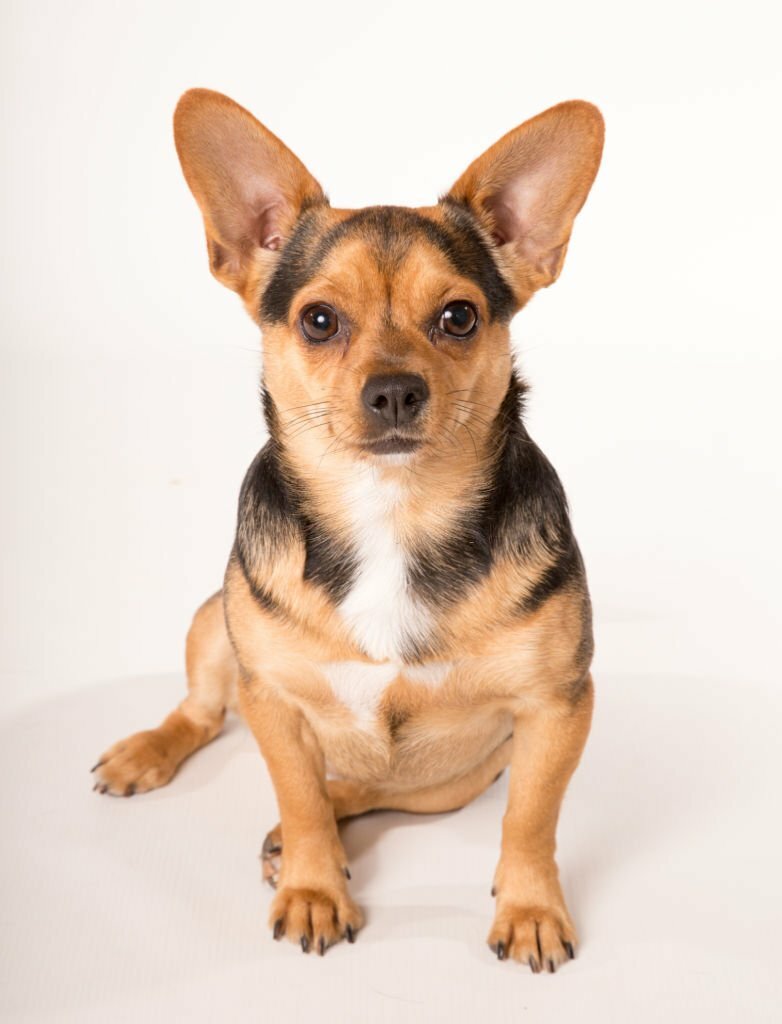
Chihuahuas may be small and full of energy, but they come with health issues that owners must be aware of. Their tiny mouths often lead to dental problems, and they’re prone to certain genetic disorders that can affect their overall health and lifespan. Regular vet check-ups and a good understanding of these risks are crucial to keeping these little dogs healthy.
Dental health is critical for Chihuahuas because they’re at a high risk for gum disease. Consistent dental care is a must. Also, since they can inherit health problems, breeders need to screen for these conditions and inform owners about them. Being proactive about your Chihuahua’s health can help them live a longer, happier life.
Dental Issues Prevalence
Chihuahuas are prone to dental diseases, with many facing issues like periodontal disease that can lead to pain, widespread infections, and even loss of teeth. Past studies highlight how common these dental problems are in the breed.
Brushing their teeth regularly is critical to prevent these health issues. Since these small dogs are genetically more likely to have oral health problems, owners must be vigilant about their Chihuahua’s dental care.
Tailored care plans can significantly lower the risk of dental complications, improving their quality of life and lifespan.
Hereditary Disease Risks
Genetic issues in Chihuahuas can lead to health problems that might shorten their lives or affect their well-being. For example, the Orthopedic Foundation for Animals offers insights highlighting the need for health screenings, especially for congenital heart disease, which can severely impact a Chihuahua’s heart function.
Neurological disorders, which may show through seizures and odd behaviors, can also significantly reduce a dog’s quality of life and cause distress for both the pet and owner.
A common issue in Chihuahuas, periodontal disease, can lead to more severe health concerns if not treated early.
Ethical breeding practices are essential, as conscientious breeders prioritize the health of their dogs and share critical health details with potential Chihuahua owners.
Lifespan Expectancy Factors
Chihuahua lifespan varies, with a typical range of 14-16 years. This variation often comes down to genetics and the dog’s environment. For example, Chihuahuas with inherited health problems like heart or neurological conditions may not live as long. Their small size also makes them prone to low blood sugar levels, so keeping an eye on their diet is vital for their wellbeing.
Good dental hygiene is critical because bad teeth can lead to other health issues. Excessive shedding can indicate skin problems or hormonal issues that need attention. Ethical breeding is vital for healthy generations, as it helps avoid passing on severe conditions that could affect their lifespan.
Maintenance Requirements
Chihuahuas have specific care needs that must be met to keep them healthy and happy. Their grooming routine should be consistent and appropriate for their coat type to prevent skin issues. They need exercise that is engaging but also keeps them safe from harm due to their small size. Proper nutrition is critical, mainly to prevent low blood sugar levels, and a solid health care plan will support their overall health.
Grooming Routine: Determine the best grooming schedule for your Chihuahua’s coat.
Exercise Regimen: Balance keeps them active and protects them from injuries.
Nutrition Plan: Plan their meals to meet their energy needs and maintain oral hygiene.
Grooming Frequency
Chihuahuas need to be groomed regularly, but how often depends on their coat type.
Longhaired Chihuahuas require frequent brushing, usually several times weekly, to prevent tangles and matting.
In contrast, their smooth-haired counterparts need less brushing due to their shorter coats.
While Chihuahuas aren’t hairless, their shedding varies based on whether they have a single or double coat, influencing how often you’ll need to groom them.
It’s also a good idea to occasionally trim the hair around their sensitive areas to keep them clean.
Keeping up with a regular grooming routine is vital for preventing dental issues and maintaining the health of your Chihuahua.
Exercise Needs
Despite being small, Chihuahuas need regular exercise to stay healthy both in body and mind. Taking them for daily structured walks helps them burn off energy and satisfies their natural curiosity to sniff and discover their surroundings.
These walks are remarkable for their heart health and keep their minds sharp, which is vital for such an intelligent breed. Protecting these small dogs from dangers during their walks is also essential.
Owners should choose activities that match their Chihuahua’s health, as the breed can have issues with their knees, heart, and weight gain if overfed. Regular exercise that suits their needs is critical to preventing these health problems.
Dietary Considerations
Chihuahuas thrive on a diet that meets their unique needs, vital for their health and long life. Their petite size means they need exceptional small-breed dog food that’s easy to chew and digest.
For young Chihuahua pups, frequent meals are necessary to keep their blood sugar stable and ward off hypoglycemia.
As these dogs are prone to knee problems like luxating patella, their diet should support bone and joint health, including nutrients such as glucosamine.
To prevent dental problems, which are common in Chihuahuas, choose foods that help maintain oral health.
It’s also essential to control their food portions to avoid obesity, ensuring they get all the necessary nutrients without too many calories.
Healthcare Regimen
Chihuahuas need a well-planned healthcare routine to stay tip-top, mainly because they’re prone to specific health issues. Regular vet visits are vital for monitoring heart conditions and checking for neurological problems that Chihuahuas might inherit.
Dental care is also crucial; these small dogs often get gum disease, so keeping their teeth clean can prevent many problems.
Because of their small size and fragile bones, Chihuahua owners should watch out for signs of knee issues, like the kneecap slipping out of place.
Plus, keeping up with their grooming will control shedding and catch skin problems before they worsen.
A consistent care plan is essential for a Chihuahua’s long and happy life.
Training Challenges
Training Chihuahuas can be challenging and requires owners to be patient and consistent. These small dogs might shake or quiver, which people often think is due to being cold, but it could also mean they are excited or anxious, making training more complex.
Their sharp ears help them be more aware of their surroundings, but this can also make them easily overexcited, requiring a careful approach to training to avoid overwhelming them.
Different Chihuahuas, especially those with a longer coat, may be easier to train than those with shorter skin. This means owners must adapt their training methods to fit their dog’s unique personality, creating a routine supporting obedience while recognizing the dog’s character traits.
Dietary Needs
When feeding Chihuahuas, choosing the right food for their small size and specific metabolic needs is critical. It’s vital to schedule their meals in a way that keeps their energy up and prevents low blood sugar, especially for young puppies. Tailoring their diet can also help with issues common to the breed, like dental health and a tendency to gain weight.
- Nutrient-Dense Food: Pick foods rich in nutrients for their overall well-being.
- Meal Timing: Plan their eating schedule to support their energy and metabolism.
- Targeted Nutrition: Adjust their diet to help avoid health problems common to Chihuahuas.
Correct meal choices and timing are essential for Chihuahuas’ health and longevity. Providing them with the right balance in their diet will help them stay active and avoid certain health conditions.
Appropriate Food Types
Chihuahua owners should focus on high-quality, small-breed-specific dog foods that provide ample nutrients to meet their pet’s high energy needs without causing weight gain. The right food should match a Chihuahua’s energetic metabolism and be portioned to prevent obesity.
Young Chihuahuas benefit from foods rich in proteins, fats, and carbohydrates to support their growth, while adults need well-rounded nutrition to stay healthy.
Choosing small-sized kibble that’s easy for them to eat and can help maintain dental health is also helpful.
Regular check-ups with a vet and monitoring their diet will help ensure your Chihuahua stays active and lives a whole life.
Feeding Frequency
Chihuahuas require a particular eating schedule to stay healthy. They should eat several small meals daily to stabilize their blood sugar and avoid hypoglycemia.
Young Chihuahua pups increase and need more frequent meals, about three to four times a day, to fuel their growth and high energy levels. As they mature, adult Chihuahuas can do well on two meals a day since they are less active.
To prevent obesity, watching how much your Chihuahua eats is essential, which can lead to joint problems like a luxating patella. Given their tiny mouths, Chihuahuas also need meals that are easy to chew and support dental health.
Special Nutritional Requirements
Despite their tiny size, Chihuahuas have specific dietary needs that are crucial for their health and prevent breed-specific health issues. These small dogs burn energy quickly due to their high metabolic rate, requiring nutrient-dense food designed for small breeds that suit their tiny mouths.
To prevent hypoglycemia, a severe risk for small dogs, feeding them multiple small meals throughout the day is recommended. The type of coat a Chihuahua has, either a smooth coat or a double coat, can slightly affect their dietary needs. Double-coated Chihuahuas might need more omega fatty acids to keep their skin and fur healthy.
It’s also critical to feed them a diet that supports heart health due to their risk of cardiac issues. Serving regular, well-measured meals helps to avoid obesity, which can lead to a luxating patella, an orthopedic problem common in Chihuahuas.
Tips for Chihuahua Pet Parents
Pet parents play a pivotal role in providing their Chihuahuas a fulfilling and enriching life. Understanding the responsibilities and considerations involved in caring for a Chihuahua is essential for creating a happy and harmonious bond.
Choosing a Reputable Chihuahua Breeder
When considering adding a Chihuahua to your family, it is perfect as a companion dog; it’s crucial to seek a reputable breeder with a focus on the health and well-being of the dogs. Responsible breeders adhere to ethical breeding practices, prioritize the puppies’ health, and provide them with proper care and socialization from an early age.
Training a Chihuahua Puppy
Proper training and socialization are fundamental for raising a well-behaved and adaptable Chihuahua. Positive reinforcement methods, patience, and consistency, can help shape their behavior and foster a strong bond between the pet parent and the puppy. Basic obedience training and socialization exercises are essential for their development and well-being.
Chihuahua’s Socialization Needs
Early and ongoing socialization is crucial for Chihuahuas to develop confidence and adaptability in various environments. Exposing them to different people, animals, and experiences in a positive and controlled manner can help prevent behavioral issues and anxiety. Encouraging positive interactions and providing mental stimulation are key to nurturing a well-adjusted Chihuahua.
By embracing the unique traits and characteristics of the Chihuahua breed and providing them with the care, attention, and love they deserve, pet parents can experience the joy of having a loyal and affectionate companion.
